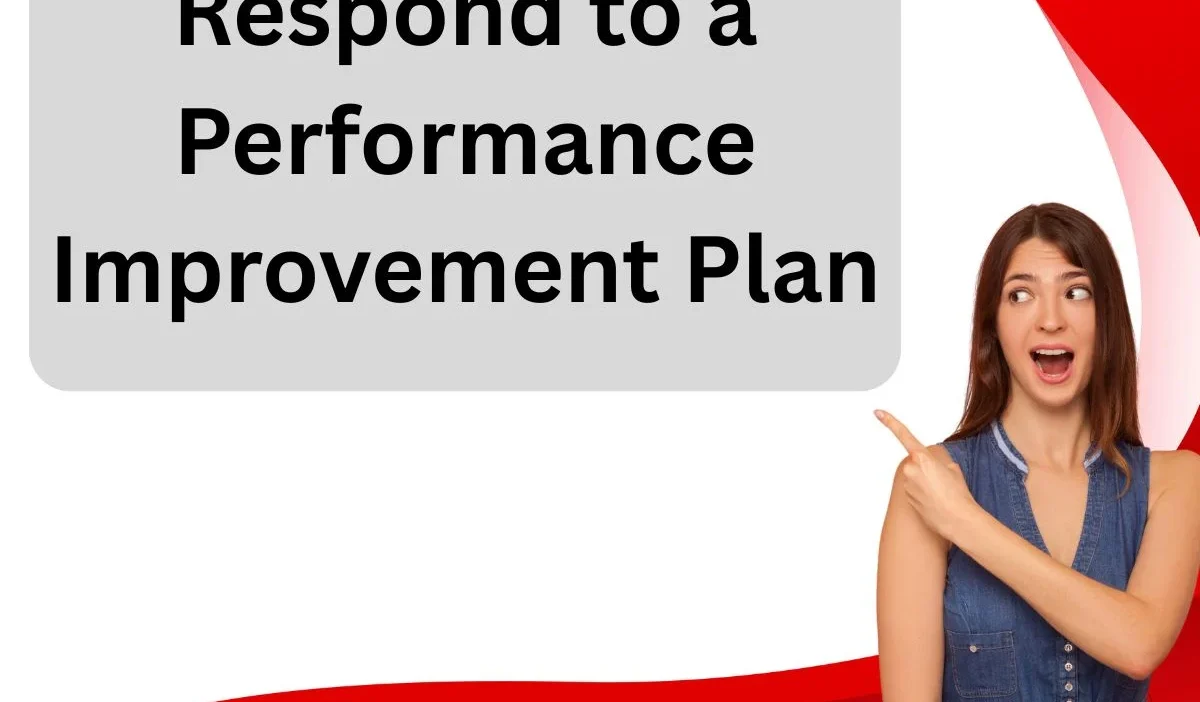You might be here because you typed something like how to respond to a performance improvement plan into your search bar.
Maybe you’re feeling nervous, caught off guard, or unsure how to frame your response professionally or calmly. Whatever brought you here, this guide is your answer.
Whether you’re replying to a manager, preparing for a meeting, or crafting an email, your words matter.
And different work situations call for different tones—some formal, others more casual or strategic.
In this article, you’ll find over 120 smart and respectful ways to express how to respond to a performance improvement plan (PIP).
These are grouped into formal, informal, idiomatic, and professional categories, giving you everything you need for every situation.
Formal Ways to Say How to Respond to a Performance Improvement Plan
Formal responses are great when you want to sound professional, respectful, and serious. Use these in official emails, HR conversations, or documentation.
- I appreciate the opportunity to improve and grow
- I take your feedback seriously and will act accordingly
- I intend to follow the outlined steps with dedication
- I welcome the chance to enhance my performance
- I am committed to addressing the areas mentioned
- I understand the importance of this plan and accept it with professionalism
- I will adhere to the expectations set forth
- I am actively reviewing the feedback for clarity and execution
- I recognize the importance of this evaluation
- I will take the necessary steps to meet these goals
- I aim to meet or exceed the stated expectations
- I am reflecting on the feedback to build a stronger foundation
- I value your honesty and will work toward improvement
- I see this as an opportunity for growth
- I will document my progress thoroughly throughout the process
- I am open to constructive suggestions along the way
- I acknowledge the concerns raised and will take corrective action
- I am committed to consistent performance moving forward
- I am seeking guidance to ensure I meet all requirements
- I will give my best effort during this improvement period
- I understand the seriousness of the situation and will act responsibly
- I will make measurable progress as outlined
- I am taking full ownership of my role in this
- I respect the feedback and intend to meet expectations
- I am requesting clarification where needed to fully align
- I will treat this plan with the gravity it deserves
- I aim to restore trust through sustained improvement
- I am reviewing resources to help meet these goals
- I am actively planning my next steps for success
- I am aligning my work with your guidance going forward
- I am committed to transparent communication throughout the process
Informal Ways to Say How to Respond to a Performance Improvement Plan
Sometimes, a simpler, more personal approach works better—especially in team chats, one-on-one talks, or when speaking directly with your supervisor.
- I get it, and I’m ready to work on it
- Thanks for the heads-up, I’ll fix what’s needed
- I know where I messed up, and I’m working on it
- I’m open to making things better
- I’ll take this seriously and step up
- I’m going to prove I can turn this around
- I hear you loud and clear
- I know I’ve got things to work on
- I’ll do what it takes to improve
- I appreciate the honesty, even if it’s hard
- I’ve got a plan to get back on track
- I’m not taking this lightly
- I’ll focus and fix what needs fixing
- I’m grateful for the chance to make it right
- I’m ready to learn from this
- I understand what needs to change
- I’ll check in regularly on my progress
- I want to be better at this
- I’m open to coaching and support
- I’ll do my part and follow through
- Let’s work together to make this happen
- I’m looking at this as a second chance
- I know what’s expected and I’m all in
- I’m taking this one day at a time
- I’ll own this and improve
- I’ve already started working on it
- I’ve taken your feedback to heart
- I’ll ask for help if I get stuck
- I’m staying focused on the goals
- I want to do right by the team
- I’m giving this my full effort
Idiomatic Ways to Say How to Respond to a Performance Improvement Plan
Idioms and expressions can help you communicate your message in a more creative or emotionally grounded way. Use these in casual emails, conversations, or light-hearted team environments.
- I’m taking this as a wake-up call
- I plan to hit the ground running
- Time to roll up my sleeves and dig in
- I’ll turn over a new leaf
- This is my chance to step up to the plate
- I’ll rise to the occasion
- I’m not going to drop the ball again
- I’ll get my act together
- It’s time to buckle down
- I’m aiming to turn things around
- I’ve taken this to heart
- I’m ready to face the music
- I’ll bring my A-game from here on out
- I’m ready to get back on the horse
- It’s time to course-correct
- I’m setting the record straight with my actions
- I’m going to clean up my act
- I’ve got my marching orders, and I’m on it
- I’ll take the bull by the horns
- I’ll right the ship
- I’m taking this seriously—no cutting corners
- I’ve seen the writing on the wall
- I’m keeping my eye on the ball now
- It’s time to show what I’m made of
- I’ll tighten things up
- I’m going back to basics
- I’m going to raise the bar
- I’m working hard to stay in the game
- I’ll treat this as a turning point
- I’m not throwing in the towel
- I’ll rebuild my track record from here
Professional Ways to Say How to Respond to a Performance Improvement Plan
In professional environments, your response should reflect responsibility, collaboration, and accountability. These are perfect for meetings, progress reviews, or written communications.
- I’ve reviewed the plan thoroughly and am ready to begin
- I’ve mapped out clear action steps to address all points
- I would appreciate regular feedback as I implement changes
- I am already working on specific areas for improvement
- I’m aligning my goals with the expectations set in the plan
- I’m fully committed to completing the plan successfully
- I plan to document all progress for transparency
- I’ve identified key areas where I need to grow
- I’ve adjusted my work habits to support better performance
- I look forward to regaining trust through consistent results
- I’ve set personal milestones aligned with company goals
- I’ve taken time to understand the underlying concerns
- I’m seeking mentoring to support my development
- I’m actively reviewing training materials to sharpen my skills
- I’ve scheduled weekly check-ins for progress tracking
- I’m making this plan a top priority
- I’m open to additional coaching if needed
- I’ve already addressed some immediate concerns
- I will follow up regularly to ensure alignment
- I am committed to meeting and exceeding performance standards
- I appreciate the structured approach to improvement
- I’ve reviewed similar past feedback to avoid repeat mistakes
- I’m refining my time management for more efficiency
- I’m collaborating with team members for better support
- I have created a timeline to meet expectations
- I am approaching this as a professional development opportunity
- I’ve taken full responsibility and have started corrective steps
- I am eager to regain full standing with the team
- I’ve reflected deeply on the feedback and understand its impact
- I have developed a performance plan that mirrors the outlined expectations
- I welcome performance check-ins to stay on track
Conclusion
Responding to a performance improvement plan isn’t easy—but how you respond can make a lasting impression.
Whether you’re being formal, casual, creative, or strictly professional, choosing the right words sets the tone for your recovery and growth.
Your mindset matters just as much as your message.
By choosing clear, respectful, and forward-looking phrases, you show that you’re ready to improve—not just to keep your job but to truly grow.
Practice these responses until they feel natural, and remember: this plan isn’t the end. It’s a new beginning.

